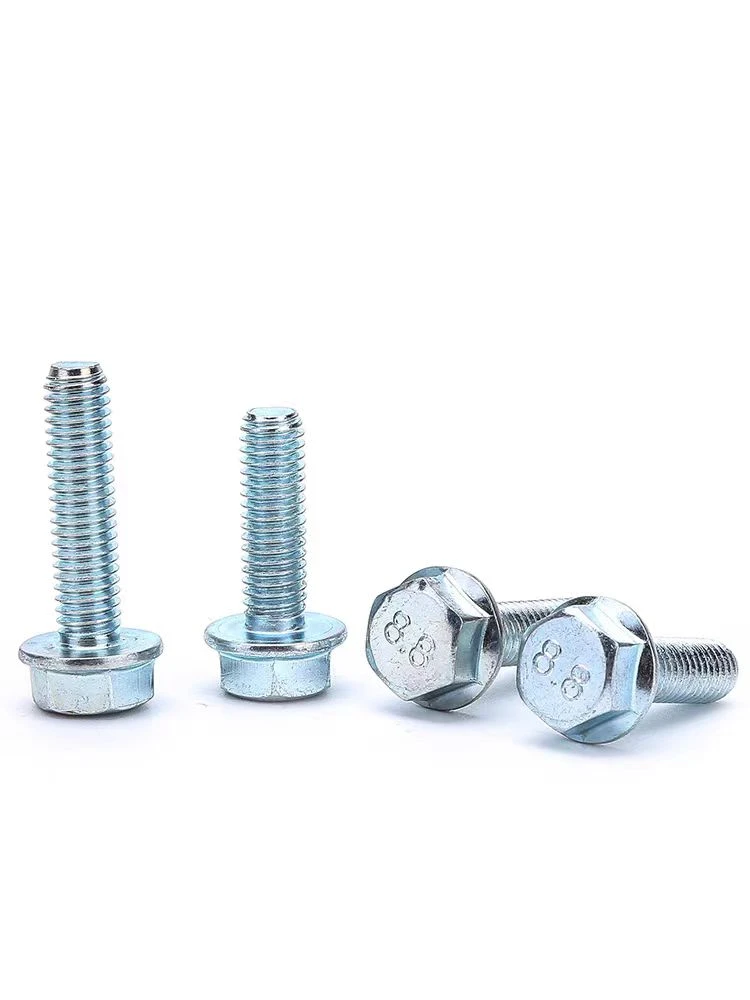

self tapping fasteners
11월 . 20, 2024 19:37 Back to list
self tapping fasteners
Self-Tapping Fasteners An Overview
Self-tapping fasteners are a vital component in many construction, manufacturing, and repair applications. These innovative fasteners are designed to create their own threads as they are driven into materials, eliminating the need for pre-drilled holes. This unique feature can save time and labor costs, which is why self-tapping fasteners have gained popularity among professionals and DIY enthusiasts alike.
Types of Self-Tapping Fasteners
There are several types of self-tapping fasteners, each suited for specific applications. The most common types include
1. Sheet Metal Screws These are designed for fastening metal sheets together or attaching metal to wood. They have sharp threads and pointed tips to easily penetrate the material.
2. Self-Drilling Screws Also known as Tek screws, these fasteners come with a drill bit tip that allows them to drill their own holes while also tapping. This makes them ideal for use in metal-to-metal applications.
3. Wood Screws While traditional wood screws require pre-drilled holes, self-tapping wood screws can be directly driven into wood. They often feature coarse threads for a secure grip in wooden materials.
4. Plastic Screws Designed for fastening plastic components, these screws typically have larger threads to accommodate the softer material and ensure a strong hold.
Benefits of Self-Tapping Fasteners
The advantages of using self-tapping fasteners are numerous. Firstly, they simplify the assembly process. Since they can be directly driven into the materials without pre-drilling, they allow for quicker installations, which is especially beneficial in time-sensitive projects.
self tapping fasteners

Moreover, self-tapping fasteners provide reliable and strong joints. Their design allows for deep engagement with the substrate, ensuring a secure connection. This is particularly important in applications where vibration or movement can loosen connections over time.
Another benefit is versatility. Self-tapping fasteners can be used with a variety of materials, including metal, wood, and plastic. This adaptability makes them suitable for a range of applications, from construction to home repair.
Installation Tips
While using self-tapping fasteners is relatively straightforward, a few tips can help achieve the best results.
- Choose the Right Type Ensure that the fastener is appropriate for the material being joined. Using an unsuitable fastener can lead to failure in the joint.
- Pilot Holes Although self-tapping screws do not require pre-drilling in most cases, creating a pilot hole can help in harder materials. A pilot hole can reduce friction and prevent material splitting.
- Proper Torque Maintain appropriate torque while driving the fastener. Too little torque may lead to a loose joint, while too much can strip the threads or damage the material.
- Quality Tools Using the right drill bits and screwdrivers can enhance the installation process. Invest in high-quality tools to ensure efficiency and decrease the likelihood of errors.
Conclusion
Self-tapping fasteners are indispensable in various industries due to their ability to streamline the fastening process. Their ease of use, reliability, and versatility make them a popular choice for both professionals and DIY projects. By understanding the different types and installation techniques, users can make the most of these fasteners, leading to stronger and more durable constructions. Whether you are working with metal, wood, or plastic, there is a self-tapping fastener designed for your needs, allowing you to tackle your project with confidence and efficiency.
Latest news
-
Hot Dip Galvanized Bolts-About LongZe|High Strength, Corrosion Resistance
NewsJul.30,2025
-
High-Strength Hot Dip Galvanized Bolts - Hebei Longze | Corrosion Resistance, Customization
NewsJul.30,2025
-
Hot Dip Galvanized Bolts-Hebei Longze|Corrosion Resistance&High Strength
NewsJul.30,2025
-
High-Strength Hot-Dip Galvanized Bolts-Hebei Longze|Corrosion Resistance&High Strength
NewsJul.30,2025
-
Hot Dip Galvanized Bolts-Hebei Longze|Corrosion Resistance&High Strength
NewsJul.30,2025
-
Hot Dip Galvanized Bolts - Hebei Longze | Corrosion Resistance, High Strength
NewsJul.30,2025

